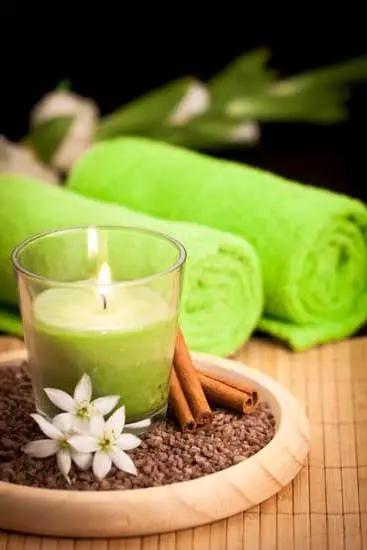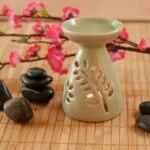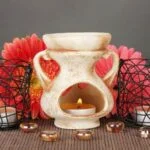Hospitals that use aromatherapy have been gaining attention for their alternative approach to patient care. Aromatherapy, the practice of using essential oils and plant extracts for healing purposes, has been increasingly incorporated into healthcare settings due to its potential therapeutic benefits. This article will explore the history, benefits, types, case studies, training, challenges, and future of aromatherapy in hospitals.
In recent years, there has been a growing interest in the role of aromatherapy in enhancing patient well-being and improving overall hospital environments. From reducing stress and anxiety to promoting relaxation and pain relief, the benefits of aromatherapy in hospitals are becoming more recognized by healthcare professionals and patients alike.
Aromatherapy has a rich history in medical settings dating back centuries. It has been utilized in hospitals as a complementary or alternative therapy to traditional medical treatments. As we delve into this topic further, it is important to understand how this holistic approach to healthcare has evolved over time and its impact on modern hospital practices.
History of Aromatherapy in Hospitals
The use of aromatherapy in healthcare settings has a long and rich history, dating back to ancient civilizations such as the Egyptians, Greeks, and Romans. These early cultures recognized the therapeutic properties of aromatic plants and used them for medicinal purposes.
In hospitals, the practice of using essential oils and aromatherapy techniques can be traced back to the early 20th century when French surgeon Jean Valnet began using essential oils to treat wounded soldiers during World War II. This marked the beginning of aromatherapy’s integration into modern medical practices.
Throughout history, hospitals have utilized aromatherapy as a complementary therapy to conventional medical treatments. Aromatherapy has been found to promote relaxation, reduce stress and anxiety, alleviate physical discomfort, and improve overall well-being for patients.
In addition to its benefits for patients, aromatherapy has also been shown to positively impact hospital staff by creating a more calming and pleasant work environment. The historical use of aromatherapy in hospitals underscores its enduring value as a holistic approach to healthcare that addresses both physical and emotional well-being.
In recent decades, there has been a resurgence of interest in incorporating aromatherapy into hospital settings as part of integrative care programs. Research has increasingly supported the effectiveness of aromatherapy in promoting healing and enhancing patient outcomes.
As a result, many hospitals are now revisiting this age-old practice and integrating it into their care strategies to provide a more comprehensive approach to patient care. This renewed focus on the historical roots of aromatherapy in hospitals paves the way for its continued integration into modern healthcare practices.
Benefits of Aromatherapy in Hospitals
Aromatherapy has been increasingly recognized for its potential benefits in healthcare settings, including hospitals. The use of essential oils and aromatherapy practices has shown promising results in improving patient outcomes and overall well-being. In hospitals that use aromatherapy, patients have reported reduced stress, anxiety, and pain levels, as well as improved sleep quality and mood. These positive effects can contribute to a more comfortable and healing environment for patients undergoing medical treatment.
Specific Benefits of Aromatherapy
The specific benefits of using aromatherapy in hospitals are vast and varied. For instance, certain essential oils have been found to have anti-inflammatory, antimicrobial, and analgesic properties which can aid in the healing process for patients with various health conditions.
Additionally, aromatherapy has been linked to reducing the need for conventional pain medications in some cases, thereby decreasing the risk of potential side effects associated with those medications. Moreover, the pleasant scents of essential oils used in aromatherapy can create a more calming and soothing atmosphere within hospital wards and treatment rooms, which can be particularly beneficial for patients who may be experiencing heightened levels of anxiety or distress.
Improving Patient Outcomes
In addition to providing relief from physical symptoms, using aromatherapy in hospitals has also been associated with enhancing emotional and psychological well-being among patients. This is especially significant for individuals undergoing long-term care or those facing chronic illnesses.
By improving mood and reducing stress levels, aromatherapy can contribute to a more positive outlook for patients, potentially leading to better compliance with treatment plans and overall faster recovery times. Furthermore, the implementation of aromatherapy in hospital settings may also help to improve patient satisfaction scores by offering an additional aspect of holistic care that addresses not only the physical aspects of illness but also the emotional and mental impacts on individual well-being.
Overall, the utilization of aromatherapy in hospitals has shown great promise in enhancing patient care experiences while simultaneously supporting positive health outcomes. As more research continues to highlight its potential benefits, it is likely that we will see further integration of aromatherapy into standard hospital practices.
Types of Aromatherapy Used in Hospitals
Aromatherapy is a widely used complementary therapy in many healthcare settings, including hospitals. The use of essential oils and aromatherapy practices has been shown to provide numerous benefits for patients, staff, and the overall hospital environment. In hospitals that use aromatherapy, various types of aromatherapy treatments are integrated into patient care to promote healing and overall well-being.
- Inhalation: A common form of aromatherapy used in hospitals involves the inhalation of essential oils through diffusers or steam inhalation. This method allows patients to experience the therapeutic benefits of essential oils through their sense of smell, which can have a calming and soothing effect.
- Topical application: Many hospitals use aromatherapy through the application of diluted essential oils directly onto the skin. This can be done through massage therapy or simply by applying the oils to specific areas of the body. Topical application of essential oils has been shown to alleviate pain, reduce anxiety, and promote relaxation.
- Environmental scenting: Some hospitals incorporate aromatherapy into their environment by diffusing essential oils throughout patient rooms, waiting areas, and other spaces. This practice can create a more pleasant and calming atmosphere for both patients and staff.
Hospitals that use aromatherapy often carefully select the types of essential oils and aromatherapy treatments based on their specific therapeutic properties and the needs of their patients. It’s important for healthcare professionals to receive proper training and education in order to safely and effectively integrate aromatherapy into patient care. By understanding the different types of aromatherapy used in hospitals, healthcare providers can better utilize these treatments to enhance patient outcomes and overall hospital environment.
Case Studies of Hospitals Using Aromatherapy
Aromatherapy has gained traction in healthcare settings, with an increasing number of hospitals recognizing its potential benefits. Several well-known hospitals have successfully integrated aromatherapy into their care practices, providing valuable case studies for the effectiveness of this alternative treatment method.
One such hospital is the University of Maryland Medical Center, which has embraced aromatherapy as part of its integrative medicine program. The hospital offers aromatherapy services to patients in various departments, including oncology and critical care. By using essential oils such as lavender and peppermint, the hospital aims to alleviate pain, reduce anxiety, and improve overall well-being for patients.
Another notable case study is found at the Cleveland Clinic, where aromatherapy is used to enhance the patient experience and complement traditional medical treatments. The hospital incorporates a customized blend of essential oils into massage therapy sessions, promoting relaxation and stress relief for patients. This approach has been well-received by both patients and staff, contributing to a more positive healing environment.
The success stories from these hospitals demonstrate the potential impact of incorporating aromatherapy into standard care practices. With proven benefits such as reduced anxiety, improved sleep quality, and enhanced pain management, it is evident that hospitals that use aromatherapy are contributing to a more holistic approach to patient care.
| Hospital | Use of Aromatherapy |
|---|---|
| University of Maryland Medical Center | Integrated aromatherapy into various departments for pain management and overall well-being |
| Cleveland Clinic | Incorporated customized essential oil blends into massage therapy sessions for relaxation and stress relief |
Training for Aromatherapy in Hospitals
The use of aromatherapy in hospitals has gained popularity in recent years, and as a result, there is an increasing demand for healthcare professionals who are trained in the practice of aromatherapy. In order to implement aromatherapy in a hospital setting, healthcare professionals must undergo specific training and education to ensure the safe and effective use of essential oils and other aromatherapy practices.
There are various training programs and certification courses available for healthcare professionals who are interested in incorporating aromatherapy into their practice. These programs often provide comprehensive education on the principles of aromatherapy, the properties and uses of different essential oils, as well as practical applications for using aromatherapy in a hospital environment. Additionally, these courses may also cover safety protocols, ethical considerations, legal regulations, and proper documentation related to the use of aromatherapy in healthcare settings.
In addition to formal training programs, some hospitals that use aromatherapy also offer specialized training for their staff members to ensure consistent and standardized practices throughout the facility. This may include workshops, seminars, or ongoing education opportunities to keep healthcare professionals updated on the latest research and best practices in the field of aromatherapy.
| Training Programs | Certification Courses |
|---|---|
| Comprehensive education on principles of aromatherapy | Coverage of safety protocols |
| Practical applications for using aromatherapy in a hospital environment | Ethical considerations and legal regulations |
| Specialized training offered by hospitals using aromtherapy | Ongoing education opportunities for staff members |
Challenges and Controversies Surrounding Aromatherapy in Hospitals
Aromatherapy has gained popularity in healthcare settings, including hospitals, due to its potential therapeutic benefits. However, its use in hospitals is not without challenges and controversies. In order to successfully integrate aromatherapy into the hospital environment, it is important to address and navigate these issues effectively.
Some of the challenges and controversies surrounding the use of aromatherapy in hospitals include:
1. Safety Concerns: One of the primary concerns related to using aromatherapy in hospitals is the potential for allergic reactions or adverse effects from essential oils. Healthcare professionals must carefully consider the safety implications of using aromatherapy on patients with pre-existing conditions or sensitive skin.
2. Standardization of Practices: There is a lack of standardized protocols for the use of aromatherapy in healthcare settings, including dosages, application methods, and specific blends. This presents a challenge for hospitals that aim to incorporate aromatherapy into their care practices while ensuring consistent and safe delivery.
3. Regulatory Considerations: Healthcare facilities must navigate regulatory guidelines and standards when implementing aromatherapy programs. This includes considerations such as licensure requirements for practitioners administering aromatherapy, as well as compliance with local and national regulations.
Despite these challenges, many hospitals have successfully integrated aromatherapy into their care offerings by addressing these concerns proactively. By establishing clear guidelines for the safe use of essential oils, providing comprehensive training for staff members, and maintaining open communication with patients regarding their preferences and sensitivities, hospitals can mitigate potential risks associated with aromatherapy usage.
In order to further promote the responsible integration of aromatherapy in hospital settings, ongoing research and collaboration between healthcare professionals and experts in alternative medicine are crucial. Addressing these challenges can lead to greater acceptance and effectiveness of aromatherapy as a complementary therapy within modern healthcare environments.
Future of Aromatherapy in Hospitals
In conclusion, the future of aromatherapy in hospitals looks promising as more healthcare facilities recognize and embrace the benefits of this alternative therapy. With a long history of use in medical settings, aromatherapy continues to gain traction as a complementary treatment alongside traditional medical practices. The specific benefits of using aromatherapy in hospitals, such as improving patient outcomes and overall well-being, have led to its increased integration into care practices.
Real-life examples of hospitals that have successfully integrated aromatherapy into their care practices serve as testament to the positive impact of this treatment on patients, staff, and the overall hospital environment. As more case studies emerge demonstrating the efficacy of aromatherapy in healthcare settings, it is likely that more hospitals will adopt and expand their use of this alternative therapy.
While there may be challenges and controversies surrounding the use of aromatherapy in hospitals, particularly related to safety and efficacy, healthcare facilities are actively navigating these issues and working to address concerns. With proper training and education for healthcare professionals, along with ongoing research into emerging trends in the use of aromatherapy, the potential for further integration and expansion of this practice within hospitals is vast.
As we look toward the future, it is evident that aromatherapy will continue to play a significant role in enhancing holistic patient care within hospital settings.
Frequently Asked Questions
What Are the Essential Oils Used in Hospitals For?
Essential oils are used in hospitals for their potential therapeutic effects on patients. They can be used to reduce anxiety, improve mood, and promote relaxation, which can aid in the healing process.
What Type of Healthcare Is Aromatherapy?
Aromatherapy is considered a complementary or alternative form of healthcare. It involves using essential oils and natural plant extracts to promote emotional and physical well-being. It is often used in combination with standard medical treatments.
Why Aromatherapy Is Showing Up in Hospital Surgical Units?
Aromatherapy is showing up in hospital surgical units because of its potential to help manage patient anxiety before and after surgery. The calming and soothing effects of certain essential oils can help patients relax, which may contribute to better surgical outcomes and overall patient satisfaction.

Are you looking for a natural way to improve your health and wellbeing?
If so, aromatherapy may be the answer for you.




